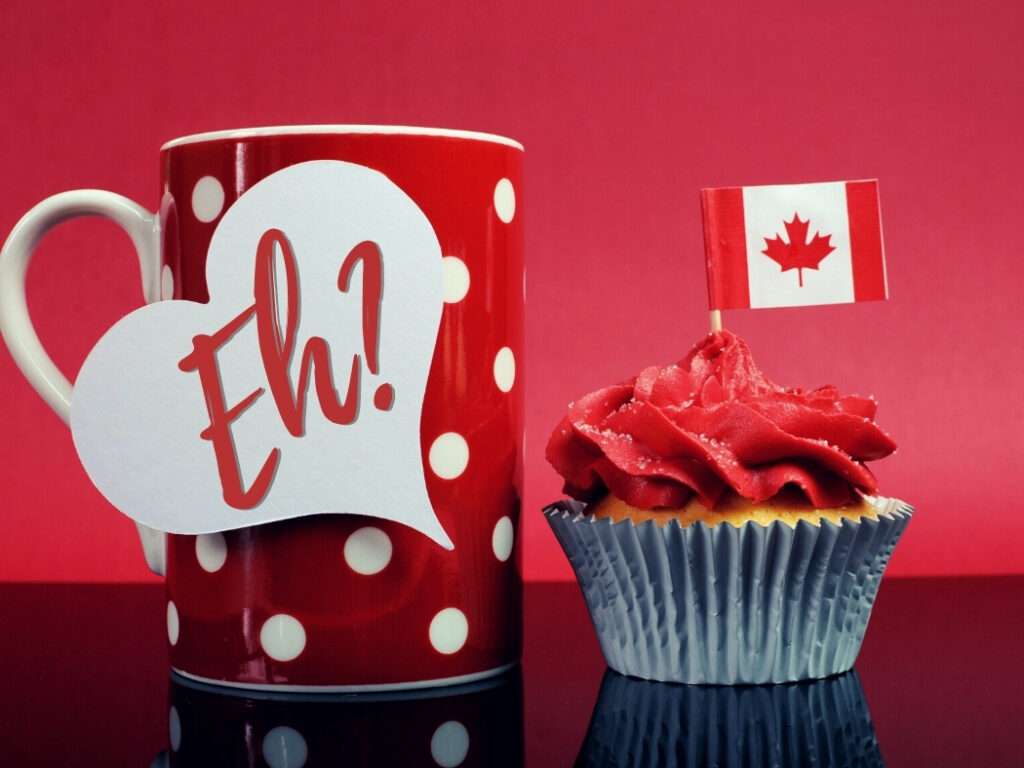If you’re planning a trip north of the border, or having some company visit from Canada, these are the uniquely Canadian slang words you should be aware of that might trip up an otherwise normal conversation.
You wouldn’t think that such a polite country as Canada would have so many uniquely Canadian slang words that could trip up our visitors from the south, but they do.
If you’ve travelled across the border, or had visitors from Canada visit you, you may have encountered a situation where you are in the middle of a conversation, or ordering dinner from a restaurant, and the Canadian suddenly says something that has you giving them a quizzical “what the heck did you just say???” look.
That’s probably because they’ve dropped one of these uniquely Canadian slang words or phrases and you have absolutely no idea what they are talking about.
A few of them have become so quintessentially Canadian, that they are now teased by them (think “Eh?”)
Years ago, I was travelling to Minnesota with a co-worker from Canada, and halfway through dinner their napkin dropped on the floor. When the waiter walked by, she policy asked if she could have another serviette. The waiter had absolutely no idea what she was asking for.
After pointing to the floor, the waiter exclaimed, “Oh, a NAPKIN!”
From coffee to utilities to the police to loungewear, Canada has its own unique set of slang words that they can speak proudly!
Here are 33 Uniquely Canadian Slang Words & Phrases That Might Confuse Americans
Get ready for a wild vocabulary ride through some uniquely wonderful Canadian slang terms that will help you understand the difference in language between two countries that are so geographically linked.
Eh?
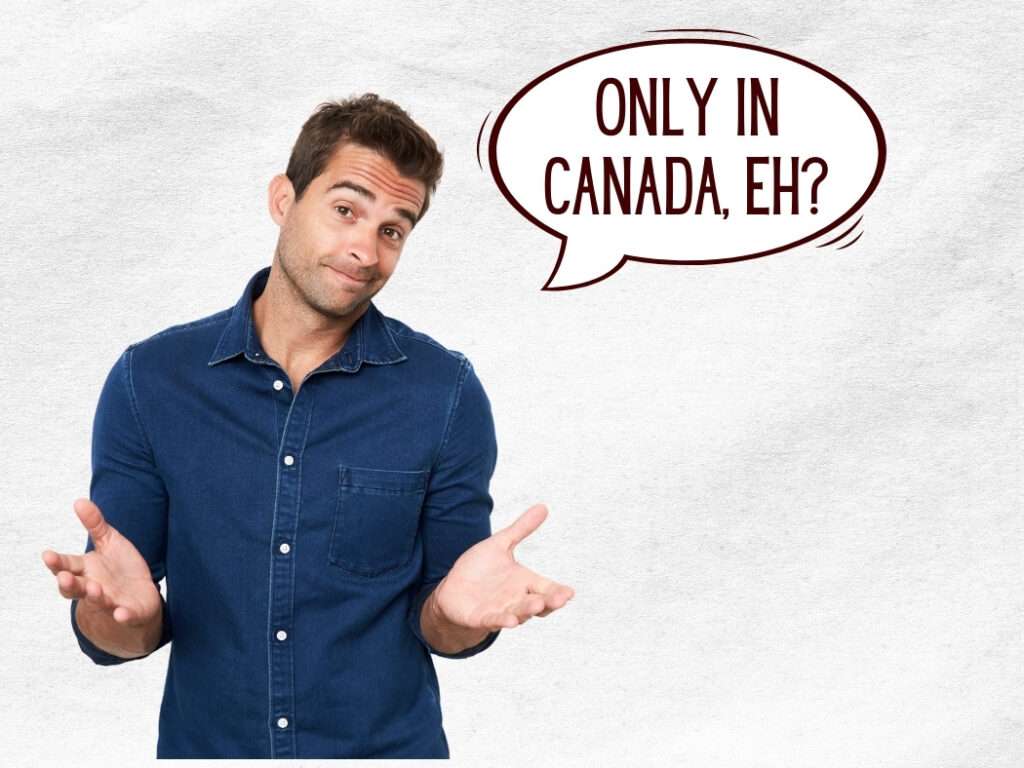
A relatively common saying that often ends a sentence or a statement like a form of additional punctuation. Most often, it means something along the lines of “Wouldn’t you agree?” as in “It’s really hot outside today, Eh?”
Although not all Canadians drop the slang term “Eh?” at the end of nearly every sentence, much of America perceives that they use it as often as a Texan says Y’all.
Serviette
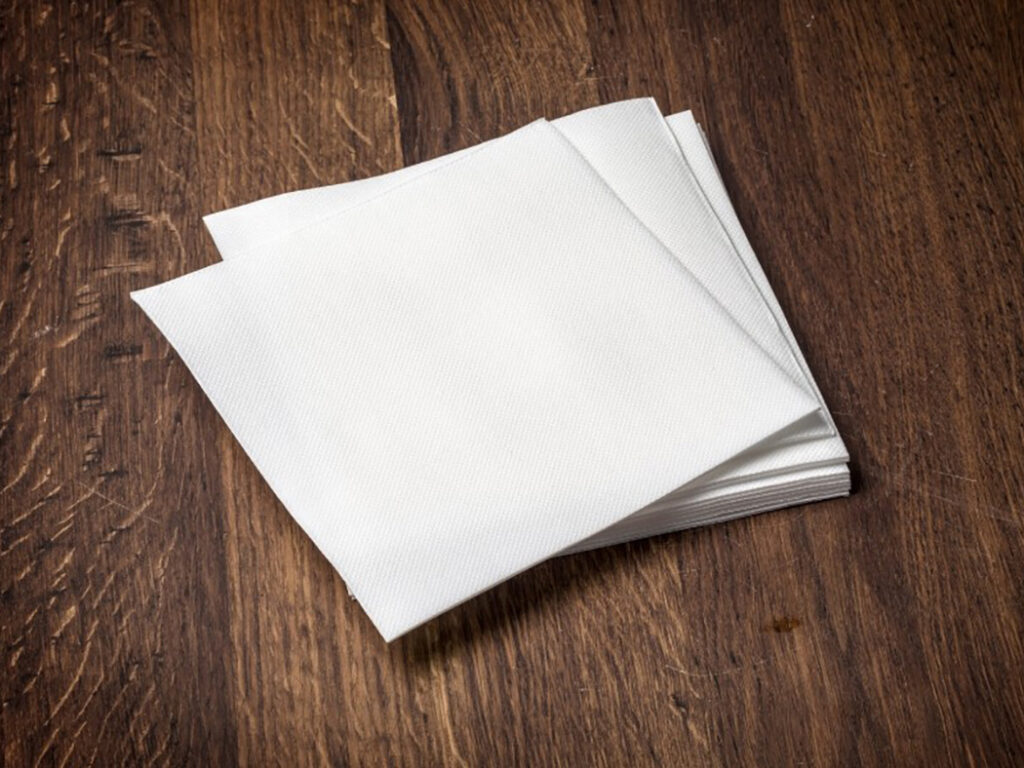
Because Canada has two official languages, English & French, some of what have become considered Canadian slang is actually the French version of a common word. Serviette, which is French for napkin, is one of these examples. This is such a common word that most Canadians don’t even think twice about asking for a serviette in an American restaurant.
Another word that found it’s start in the French-Canadian language is poutine, but we’ll get to that one later.
Canadian Tuxedo
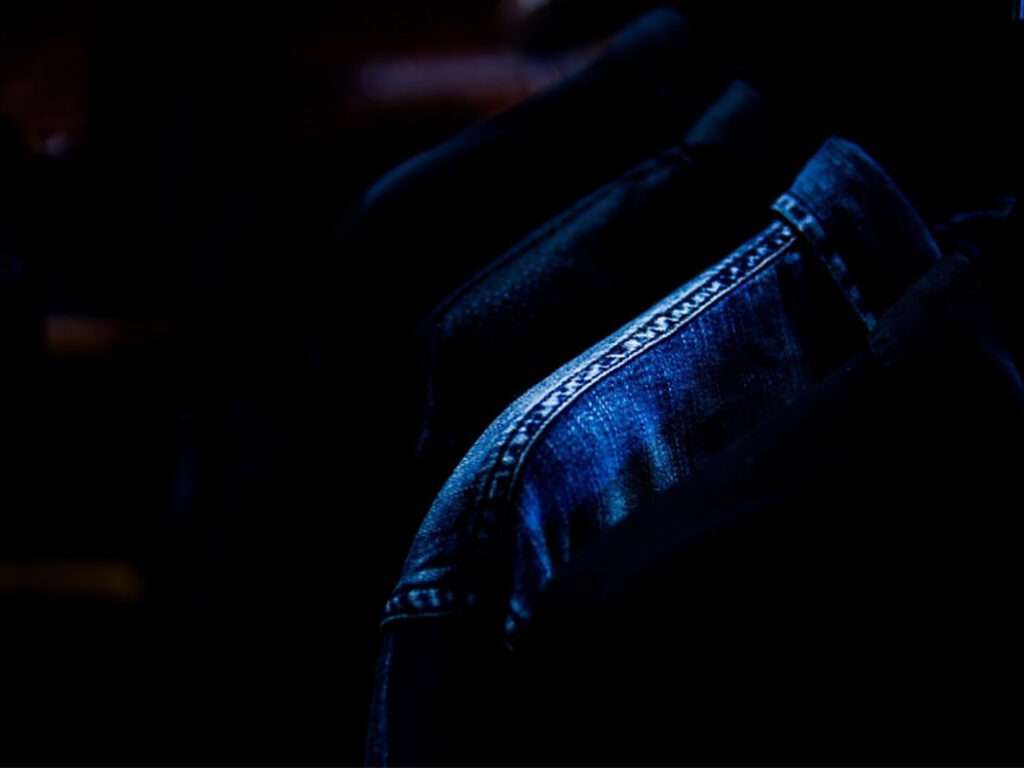
When someone wears a denim jacket over matching jeans, this is affectionately known as a Canadian Tuxedo. Similar in theme to the Texas Tuxedo which is a suit jacket paired with jeans, cowboy boats, and a cowboy hat.
The term reportedly got its start back in 1951 after Bing Crosby (who went on to star in one of the most famous Christmas movies of all time) was refused entry to a prestigious hotel in Vancouver, British Columbia because he considered “under-dressed” by the establishment. The hotel’s concierge reportedly did not recognize the famous singer and thought he was in the wrong place because he wore denim tops and denim bottoms.
Levi’s caught word of what had happened to Crosby and took advantage of the situation by designing Crosby a custom tuxedo made entirely out of denim.
Timmies
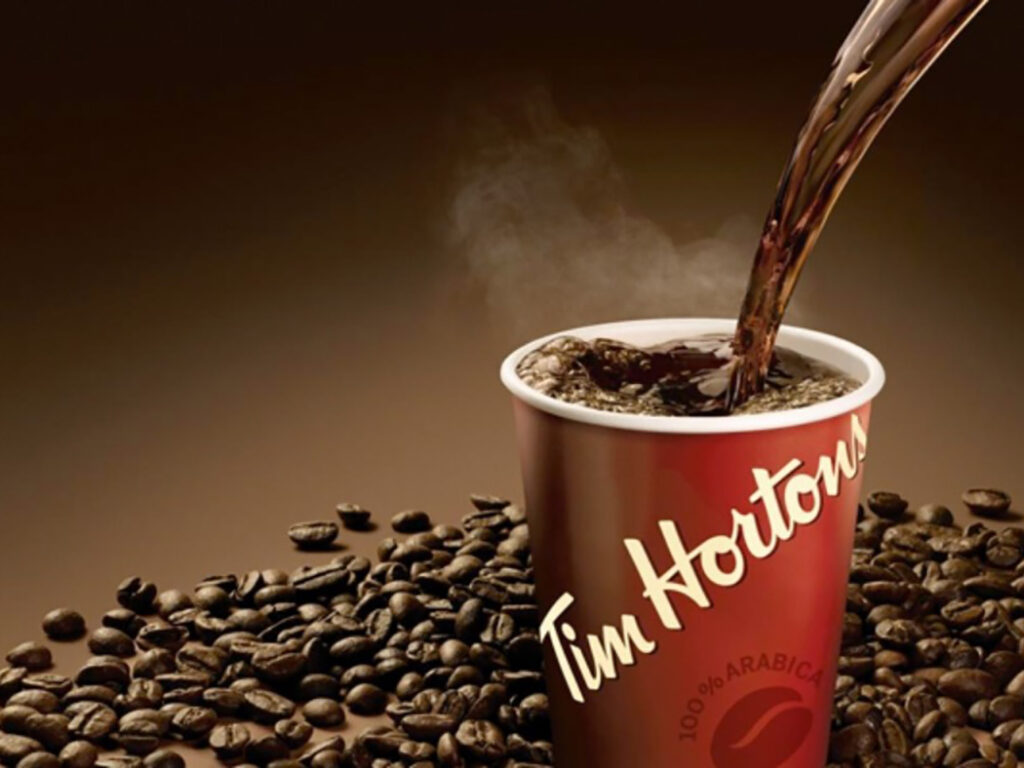
A shorted version of Tim Hortons, this refers to the famously Canadian brand of delicious brewed coffee (unless you are a Starbucks fan).
If you are a Starbucks fan, there are plenty of those to be found across Canada. However, if you prefer Dunkin’ Donuts, you are more likely to be satisfied by the offerings at Tim Hortons.
Poutine
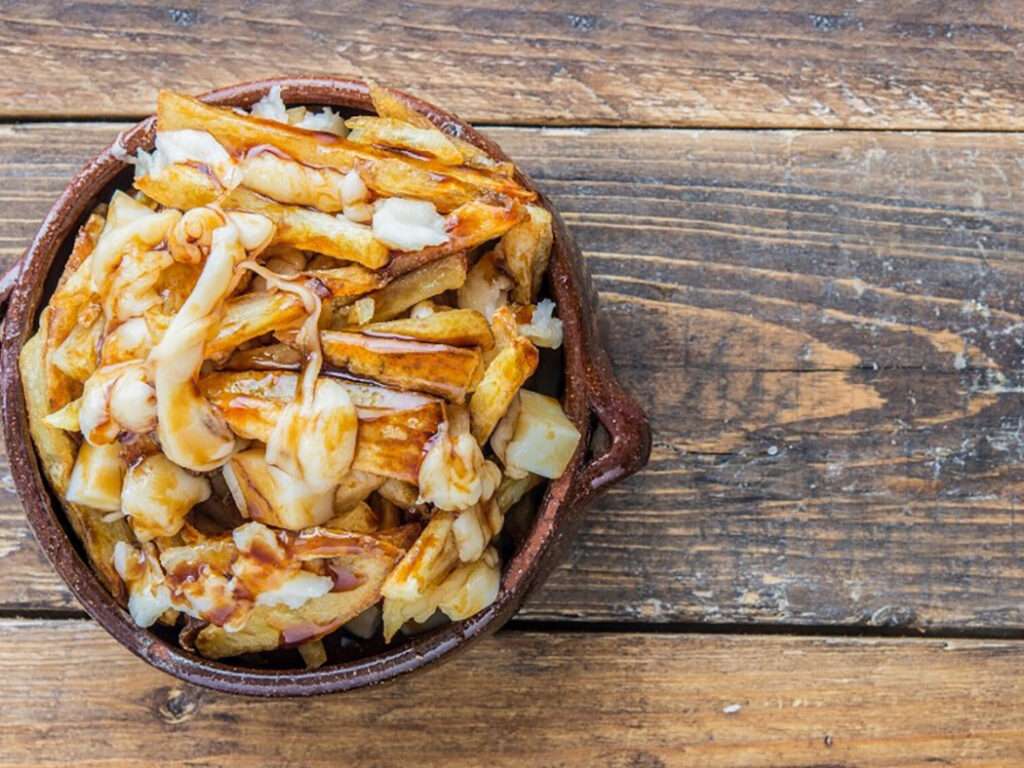
Born in rural Quebec, Poutine is a uniquely Canadian dish featuring French fries, cheese curds, and gravy. Poutine itself is a French slang term for “a mess,” which is quite appropriate given the traditionally messy look of the dish.
This dish has been gaining increasing popularity throughout Canada and the US, so it is possible that this one will not trip you up anymore.
But if anyone asks for Poutine, think Chilli Cheese Fries, only without the chili and with gravy instead.
Cottage
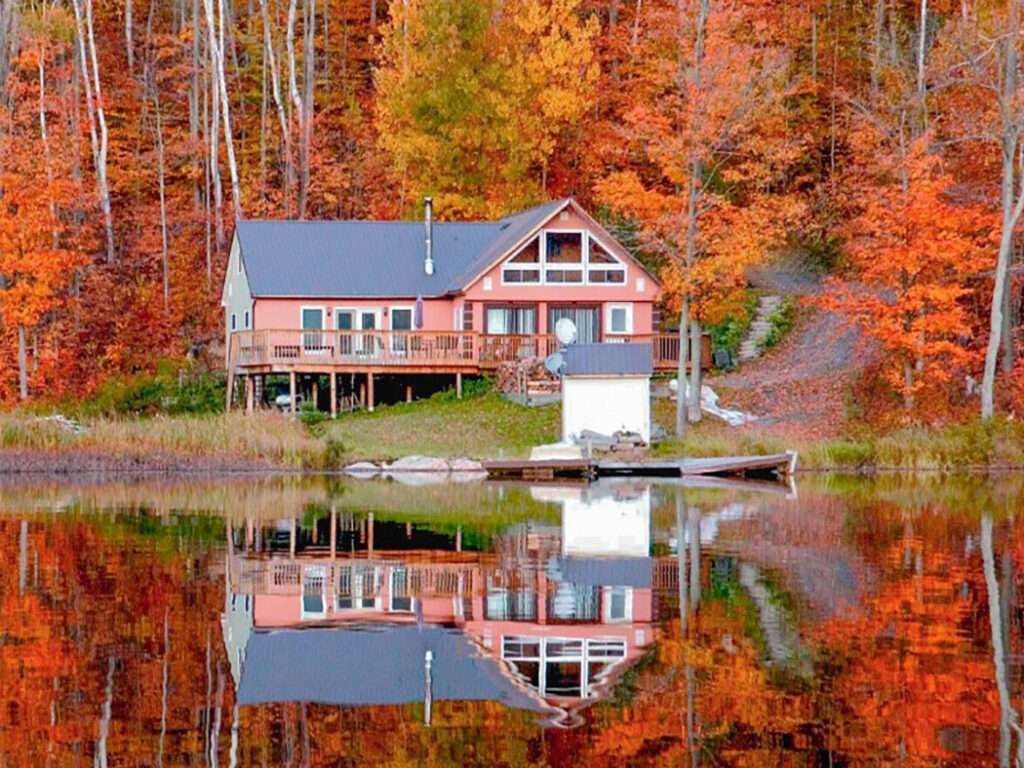
In Canada, they escape for the weekend to the cottage. Americans tend to head off to the cabin instead.
Although not a hard and fast rule, the generally accepted definition – in Canada – is that a cottage is on the water and a cabin is in the woods or in the mountains.
So, if you hear a Canadian referring to a cottage, picture a small house (like a cabin) but located on the waterfront – most often a lake or large river.
But as cottage life and the massive growth of the Muskoka region will attest, cottages are no longer cozy little shacks. In fact, some can be quite massive and decked out with all of the comforts of home. Some cottage country areas are now even fully serviced with cable and high speed internet.
Loonie (and Toonie)
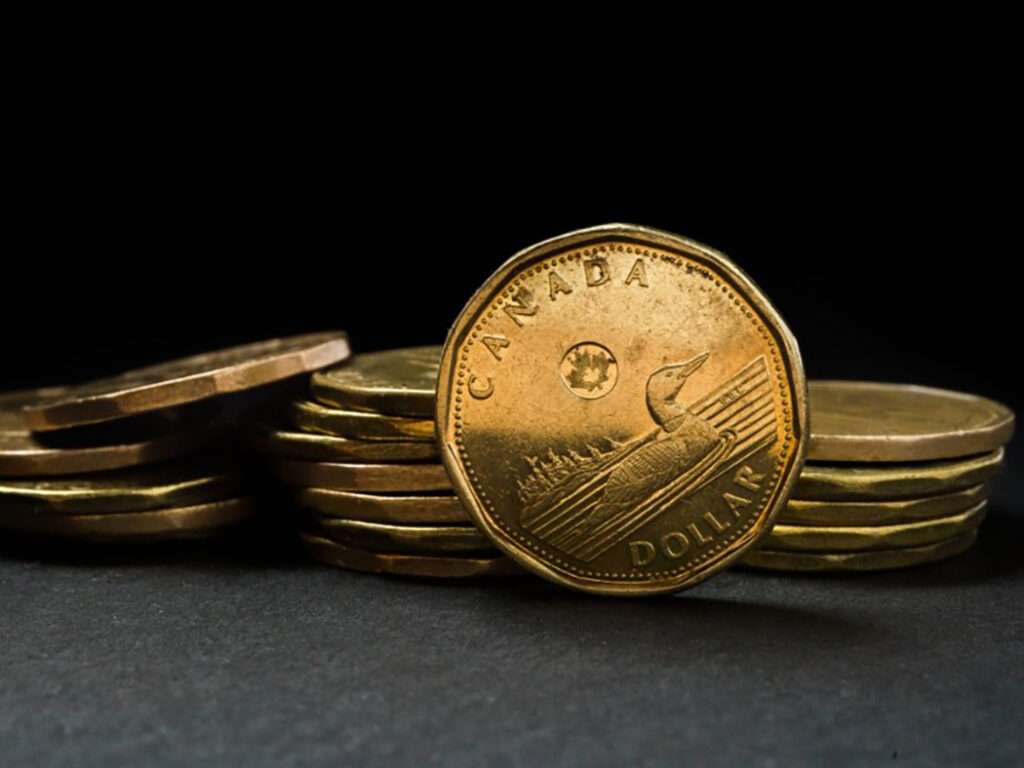
Way back in 1987 (can you believe that’s almost 35 years ago!!!) a gold-colored coin was introduced as a replacement for the one dollar bill. This coin, with a solitary loon on one side, quickly became known as a Loonie.
In 1996 (25 years ago!!), the Royal Canadian Mint followed up with a two-dollar coin to replace the two-dollar bill, which was subsequently dubbed the Toonie (also known as the Twoonie).
The loonie became such a popular nickname for the Canadian dollar that the Royal Canadian Mint trademarked the name in 2006.
And this is why you’ll hear many Canadians jingle more than American’s – way more coins to carry around.
But, to balance it out, the Canadian government finally discontinued the penny back in 2012.
And now, most people pay by debit or credit anyway.
Double-Double
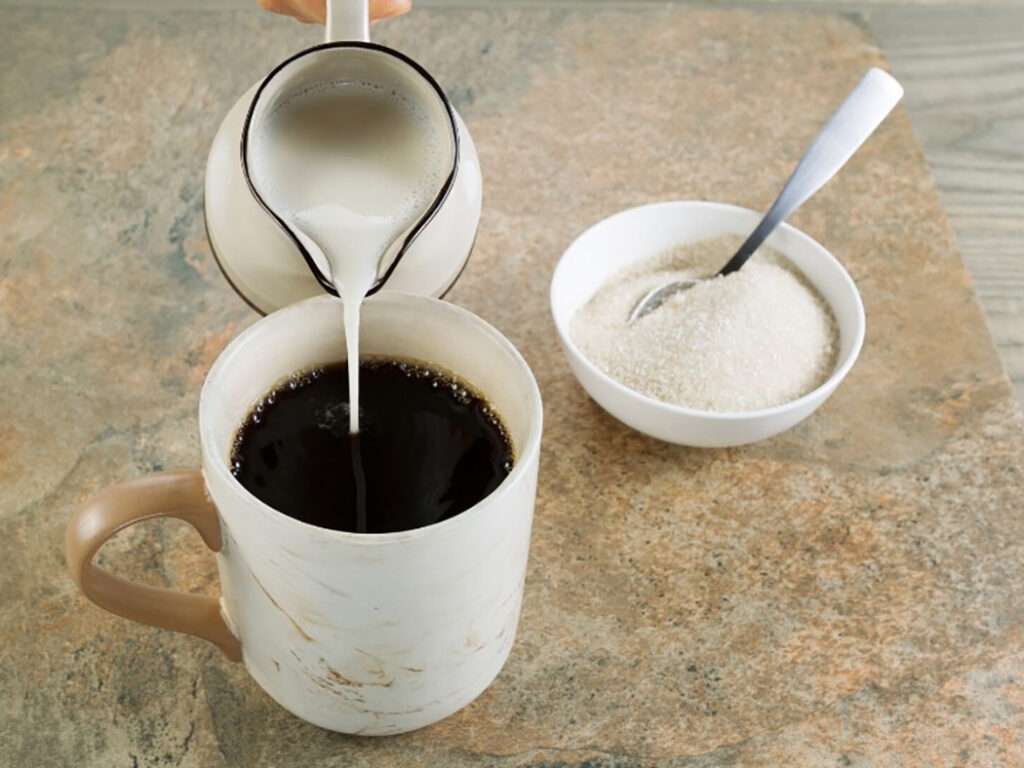
In basketball, a double-double refers to when a player accumulates ten or more in two of the following five statistical categories: points, rebounds, assists, steals, and blocked shots during a single game.
But not so in Canada. In Canada, a double-double is when you want two creams and two sugars in your coffee, most often at Timmies. It has become so common, that the coffee part is now automatically assumed and all you have to ask for is a Large Double-Double in order to receive a brewed coffee with two creams and two sugars.
An interesting fact, at least at Tim Hortons, is that the actual amount of cream and sugar put into a double-double varies based on the size of the coffee you order. That way, your Medium Double-Double tastes exactly the same as your Extra-Large Double-Double.
And, if you don’t know it by now, I LOVE all things coffee! So getting my coffee order right is very important to me!
Pencil Crayons
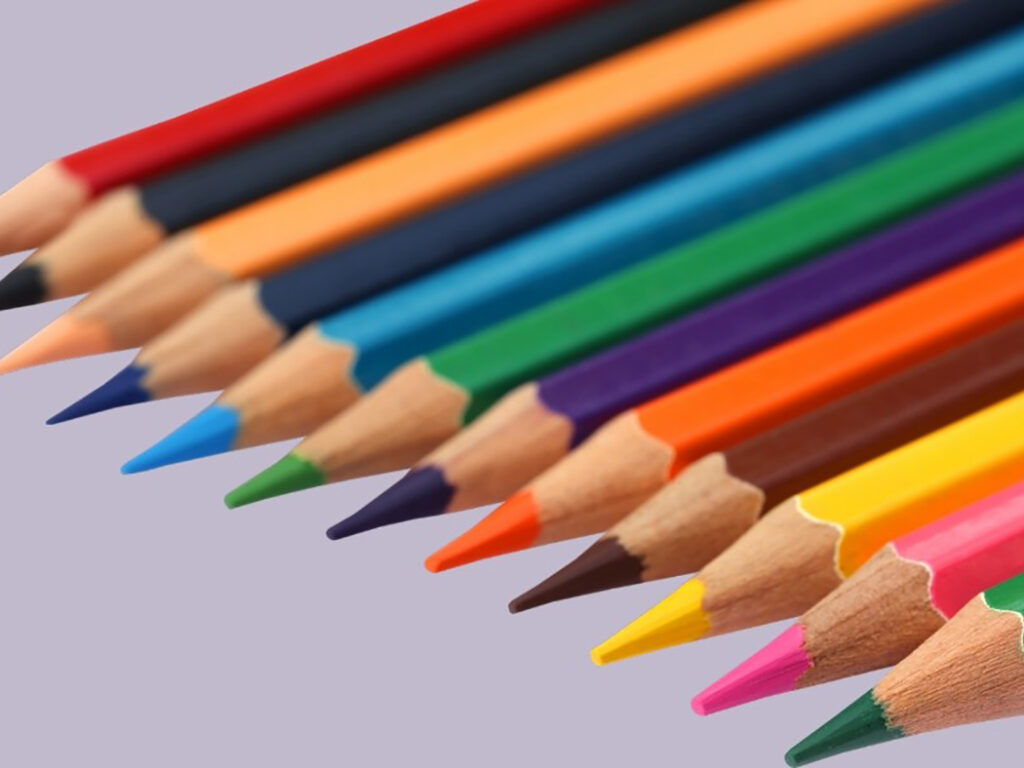
Colored pencils are known in Canada as pencil crayons. Perhaps it’s because pencil crayons fall halfway between the traditional leaded pencil and the colorful crayon. Or perhaps it’s because the French word for pencil is actually crayon, so the French version of colored pencil is “crayon de couleur.” Perhaps we will never know for sure.
Two-Four
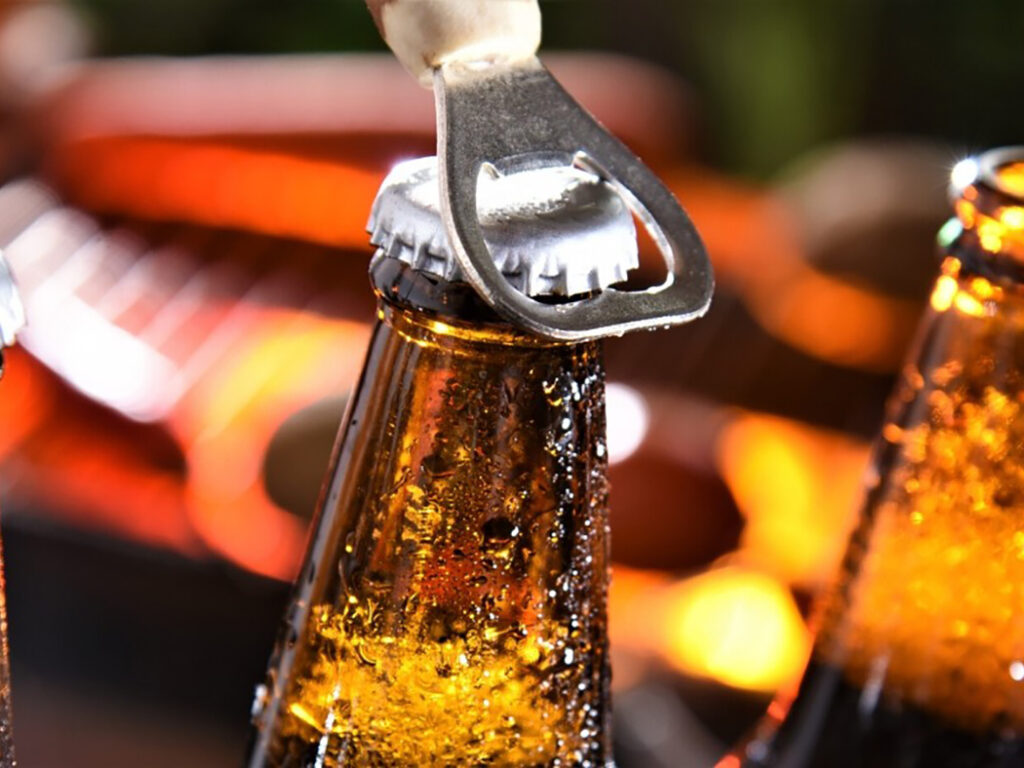
Heading up to a Canadian cottage for the weekend? Make sure you bring your two-four with you!
No, it’s not some kind of wood. And, no… it’s not a gun.
A two-four is Canadian slang for a case of 24 (aka two four) beers.
Kitty-Corner
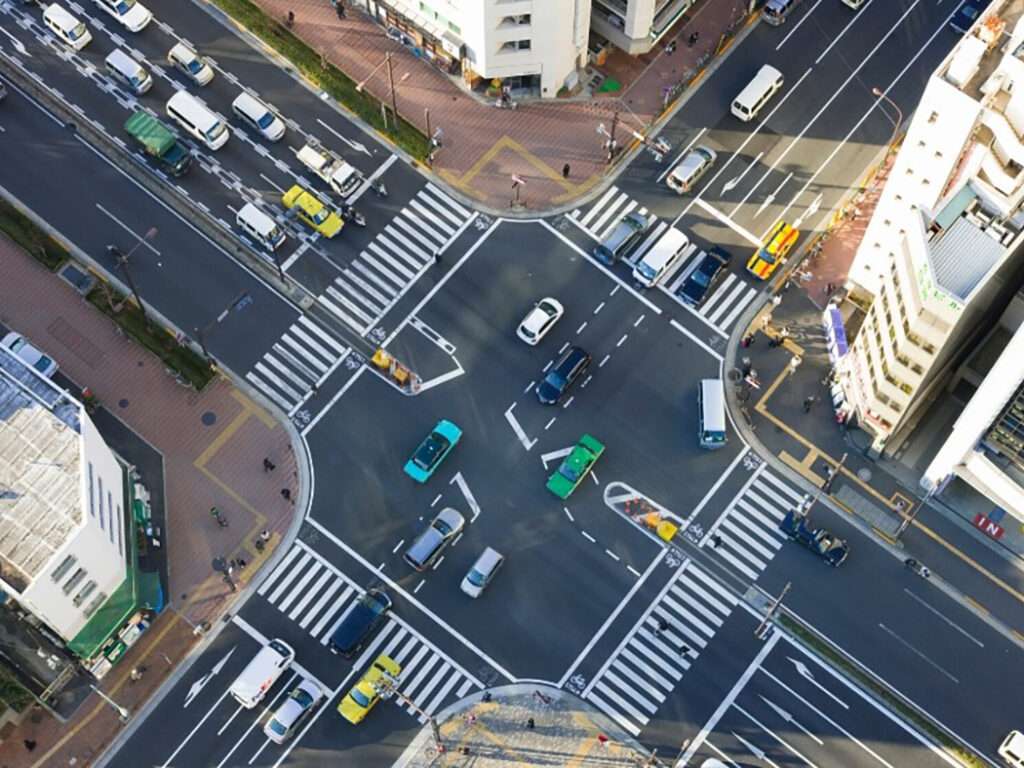
Surprisingly, the Canadian slang phrase Kitty-Corner has nothing to do with cats. It is used to describe two things that are diagonally across from each other, like when you pull up to an intersection and you see two Tim Horton’s Kitty-Corner from each other.
Language experts believe that the phrase Kitty-Corner actually comes from the expression cater-corner, which is derived from the French word quatre, which means four.
So, yet another bit of French that made its way into the Canadian vocabulary.
Mountie

A well-known symbol of Canada, although likely seen more by Americans in Canadian movies than by your average Canadian in real life.
Members of the Royal Canadian Mounted Police are often referred to as Mounties. These iconic law enforcement officers are known for their striking red uniform, which is often turned into a Halloween costume, sometimes including a horse.
Snowbird
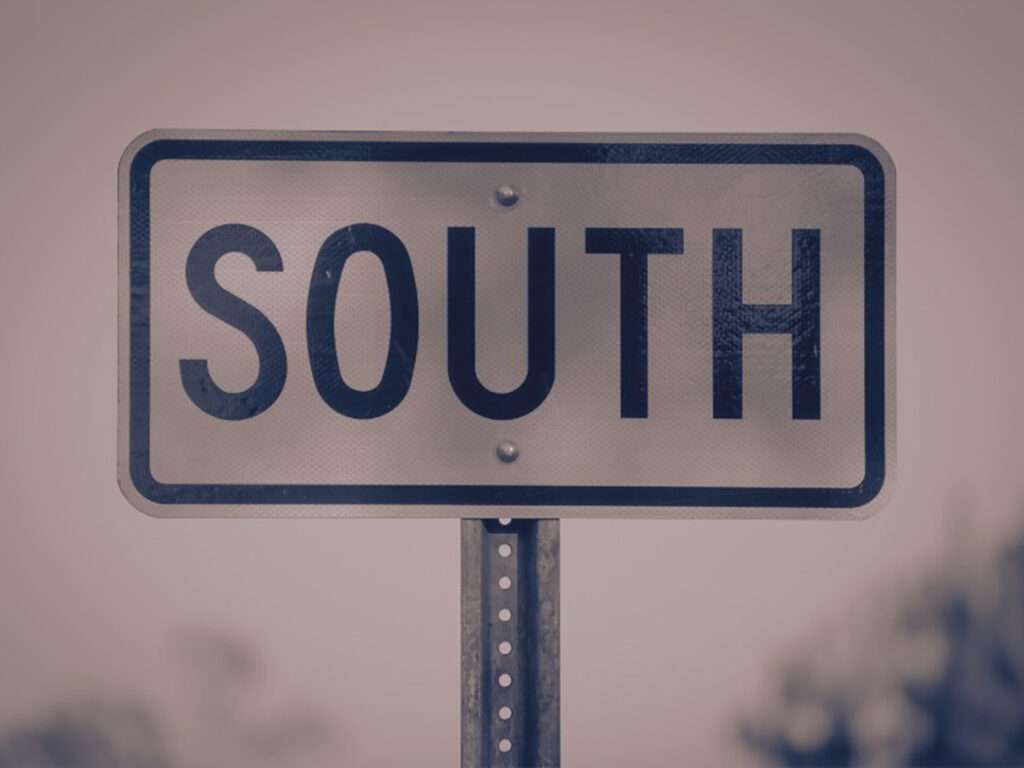
Not actually a winged creature, a snowbird refers to retired (or semi-retired) Canadians who pack up their belongings and move south for the Winter. It is also a much-loved song by Canadian icon Anne Murray, but there is nothing to say for sure that this Canadian slang term came from this song about a bird flying away from winter… but maybe.
Just to confuse matters a tiny bit more, the term Snowbirds is also used to describe the military aerobatics team that puts on quite the air show flight demonstrations across Canada during the summer.
Chesterfield
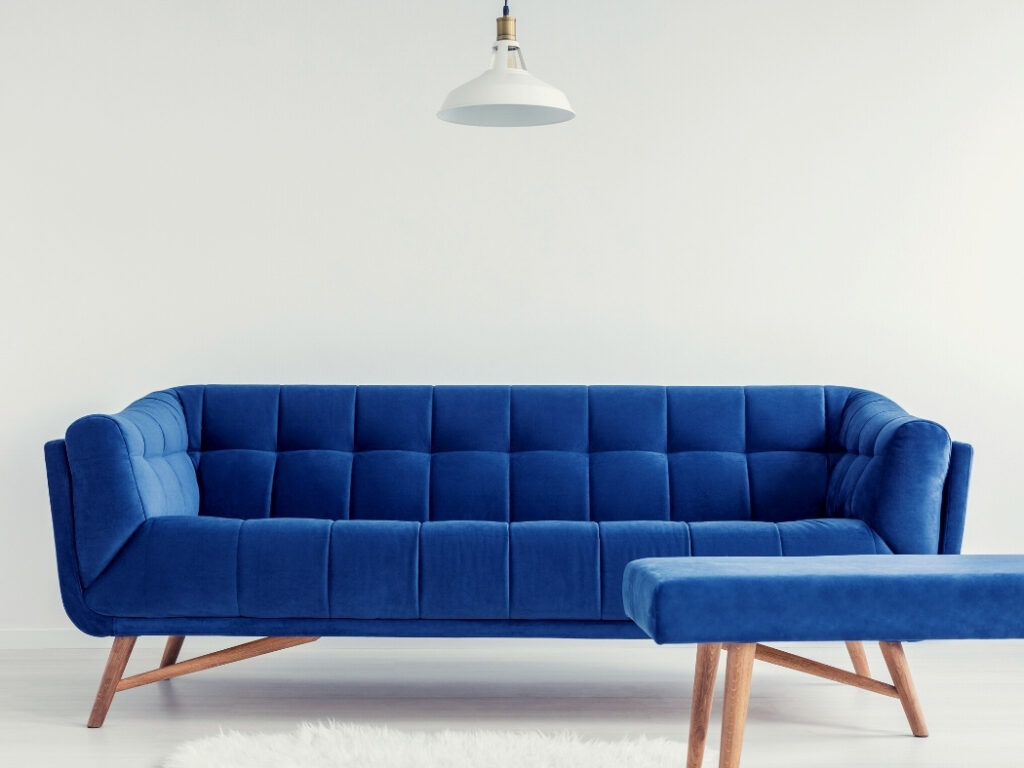
If you want to sit down and stream some classic television on Netflix with your grandmother, you may want to get comfortable on the good old Chesterfield.
This is a dated Canadian slang term, typically used by the older generation, to refer to a couch or sofa. But, who knows, it may make a comeback someday.
And don’t forget to check under the chesterfield cushions for some lost loonies and toonies!
Pop
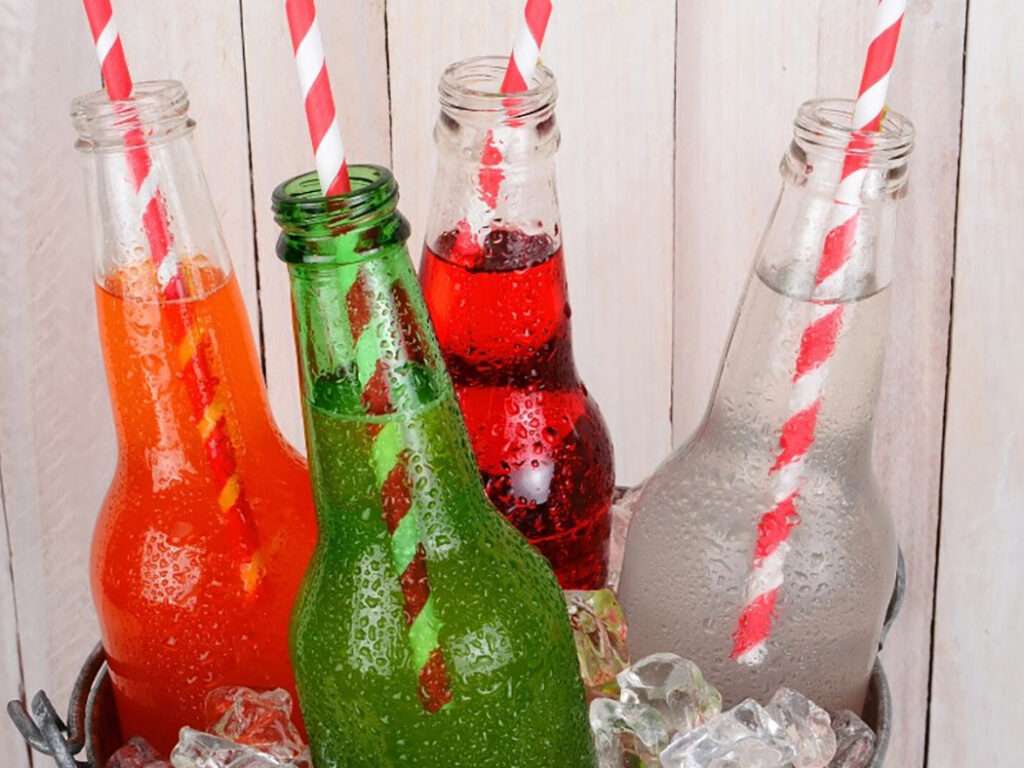
That fizzy beverage that goes perfectly with a hamburger is known in Canada as Pop but is typically known south of the border as Soda. Except in Minnesota. In ‘Sota, they call it pop. But let’s face it, Minnesota is basically the Canada of the US.
The difference appears to be one of delivery. In the US, soda fountains were the popular way to enjoy this carbonated beverage. In Canada, they started by enjoying Coca-Cola from a bottle, which made a beautiful little “pop” sound when you opened it.
At least, that’s how the story goes.
Caesar Cocktail
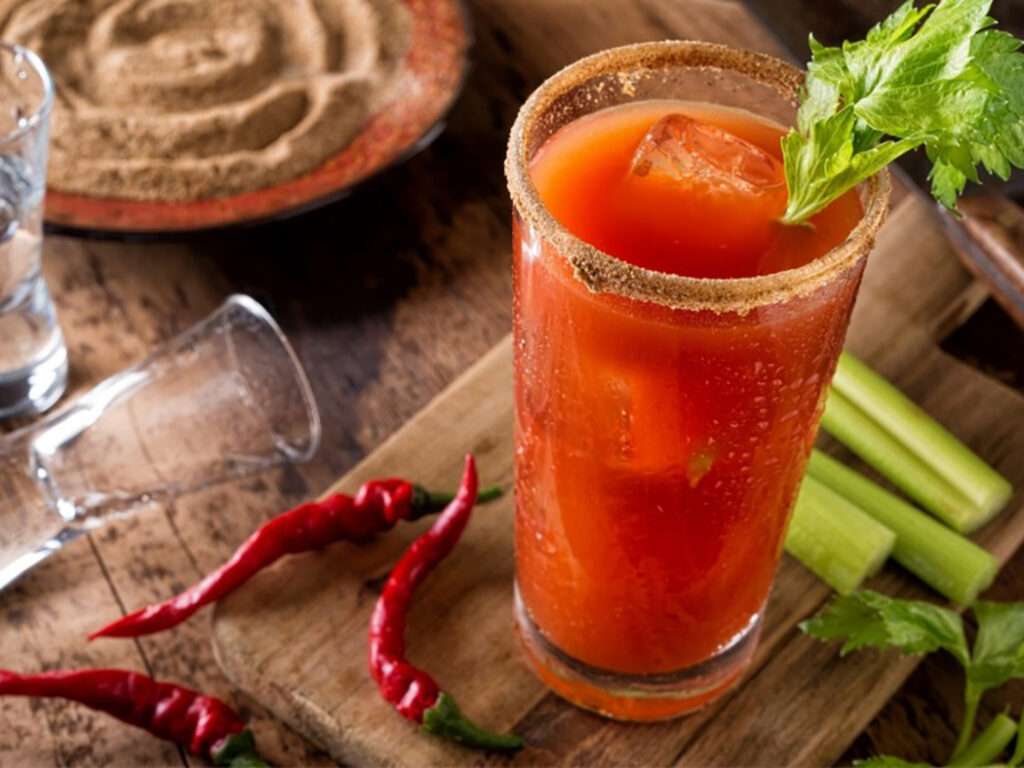
This has nothing to do with the salad. This is an adult beverage. A VERY adult beverage.
In America, the closest proximity is a Bloody Mary. But in Canada, they use a different base. A Caesar contains a delicious mixture of vodka, Clamato juice (not tomato juice), Worcestershire sauce, celery, and various other wonderful seasonings – depending your taste & preference.
The main difference between a Caesar and a Bloody Mary is the tomato juice that they use in the United States vs the Clamato cocktail that is typically used in Canada. That, and a Bloody Mary has become a unique cocktail where restaurants try to outdo each other by adding a variety of really weird things to their Bloody Mary cocktails such as olives or entire hamburgers.
Freezies
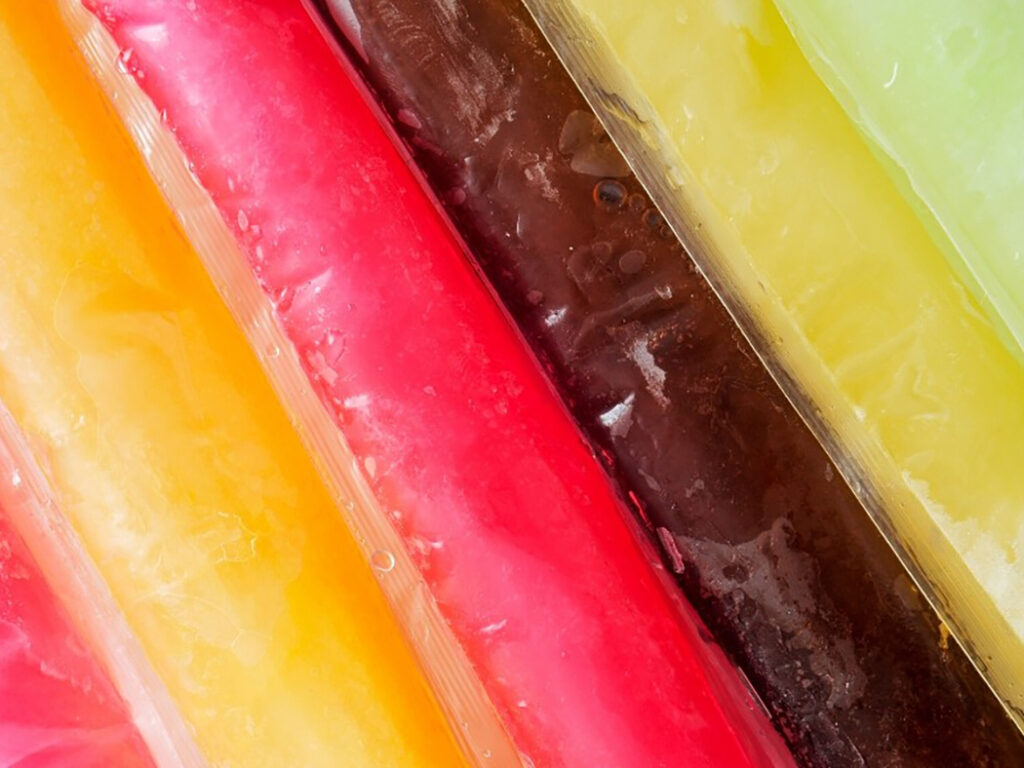
These delicious frozen treats that are a great way to cool down on a hot summer’s day go by many names around the world. They are known as Freeze Pops, Otter Pops, Icey Pops, Ice Poles, and The Plastic Things That Cut the Sides of Your Mouth. Some even refer to them as popsicles, despite the complete lack a popsicle stick.
The most popular one in the US is Freeze Pop or Otter Pop (because of the brand name), but in Canada they are affectionately referred to as Freezies.
KD
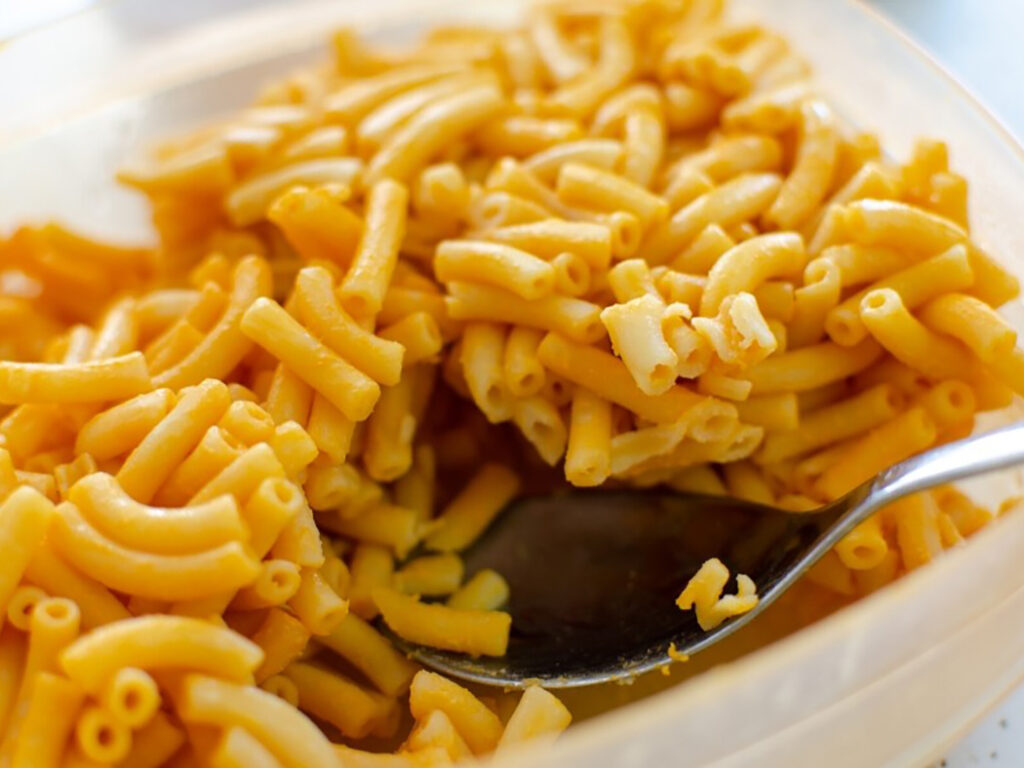
Kraft Macaroni & Cheese, as it is known in the US, goes by the much quainter name of Kraft Dinner in Canada. And because Kraft Dinner can take SOOO long to say when you’re really hungry, the name has been shortene down to its initials, K.D.
Hydro

In America, to keep the lights one once must pay their Electric bill. In Canada, however, this particular utility is referred to as the Hydro bill.
So if someone says they need some tips on how to save on their Hydro bill, you know know that they mean electricity savings tips.
Most in Canada believe that this comes from the fact that many of the utility companies were government-owned and named after the province until recent years, including Ontario Hydro, BC Hydro, etc.
Those companies were named that way because, initially, most of Canada’s power came from Hydroelectric dams. Although that is no longer the case, and the crown corporations have since been privatized, Hydro remains in the lexicon of many Canadians when referring to their power bill.
Toque
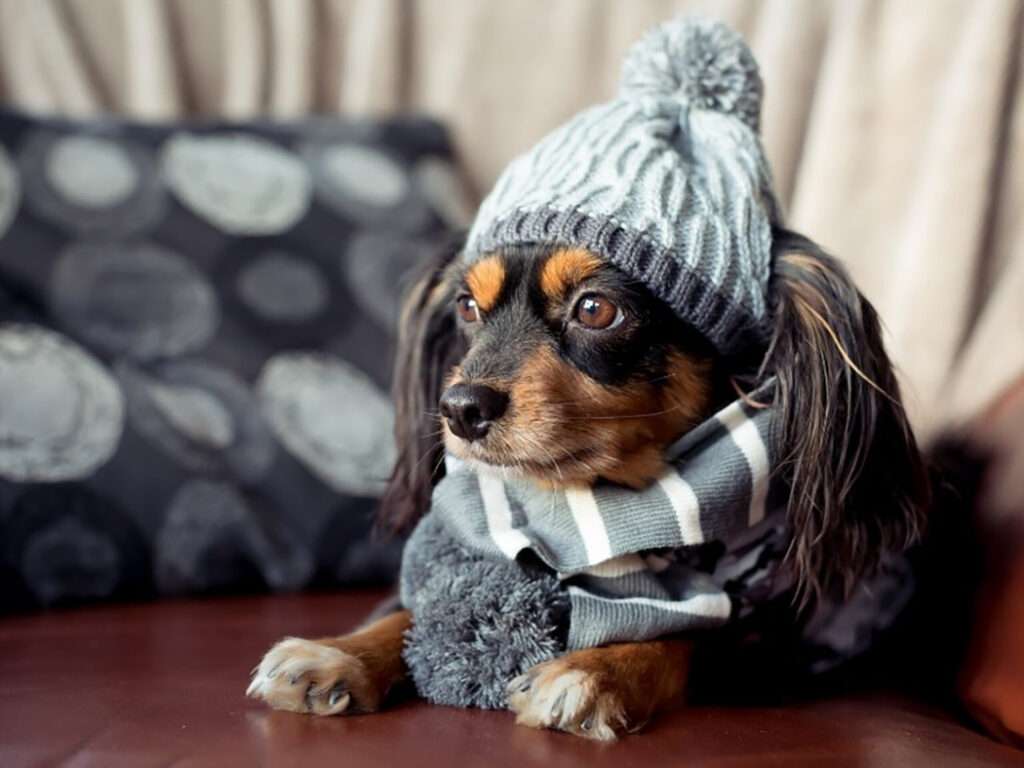
Hipsters wear beanies. Canadians wear toques. In case that doesn’t make it clear enough, a toque is a warm, knitted cap that is perfect for helping to keep the cold winter winds away from your ears.
This is something completely foreign to someone who lives in Florida, unless they are a hipster.
Washroom

Americans may be confused if a Canadian asks where the washroom is, because it sounds like the strange Canadian is referring to the laundry room.
Washroom, bathroom, and restroom can be used interchangeably throughout Canada. However, if you think about the origins of the words, washroom is the one that makes the most sense. After all, not all bathrooms contain a bath. A people rarely go to the restroom for the sole purpose of resting. But every washroom includes a sink so that you can wash your hands after you’re done.
A Mickey
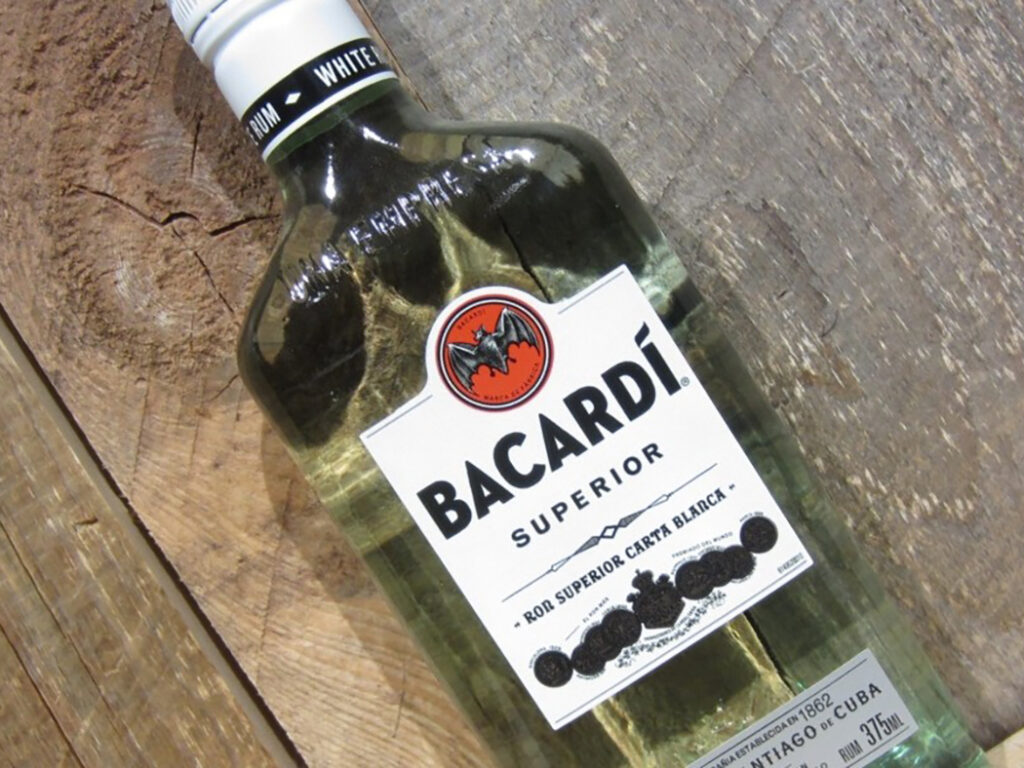
Here is where things take a bit of a dark turn. In Canada, the slang term Mickey is used to describe a small (375 ml, aka about 12.5 oz) bottle of alcohol, which is about the size of your average flask. Americans tend to refer to this as a Pint.
In the US, the term Mickey actually has a very different, very dangerous, and very criminal meaning.
In America, slipping someone a mickey does NOT mean handing someone a small bottle of booze while nobody is looking.
So don’t jump to judgement if a Canadian says they slipped someone a mickey. It probably means they snuck some booze in to somewhere (or to someone) it wasn’t supposed to be.
Toboggan
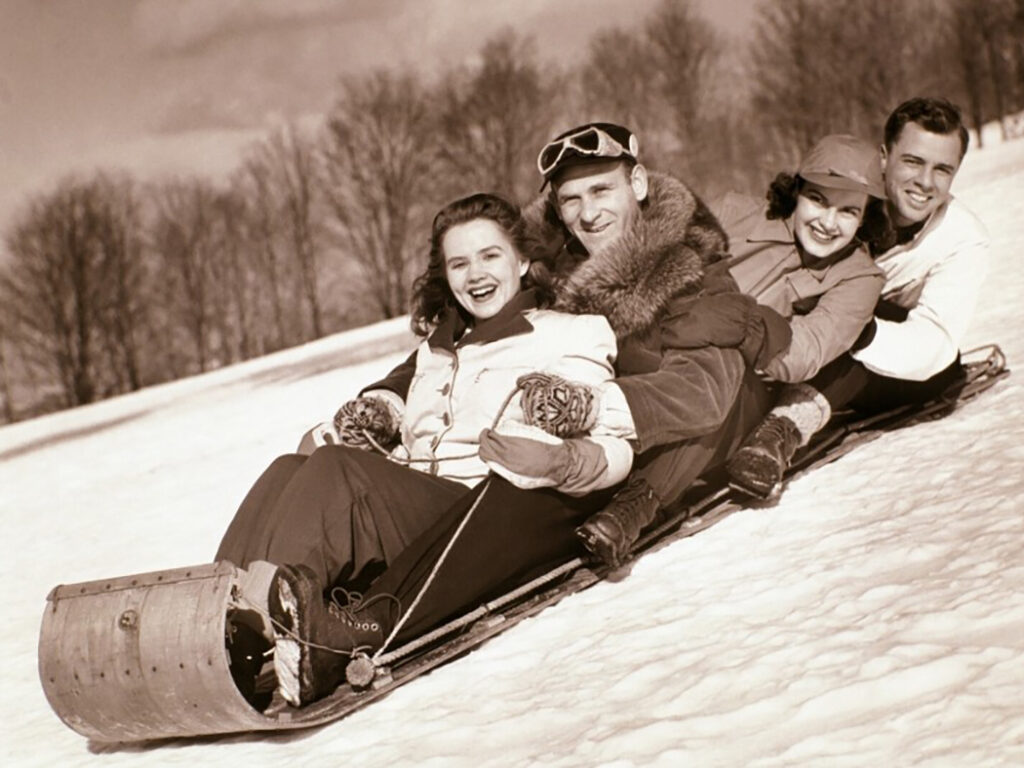
A toboggan is a long, narrow sled used for winter fun in much of Canada. One Interesting fact about the Canadian slang word toboggan is that in the southern United States, residents somehow confused the toboggan and the toque one would wear while riding one and now call knitted hats “toboggans.”
Bucks
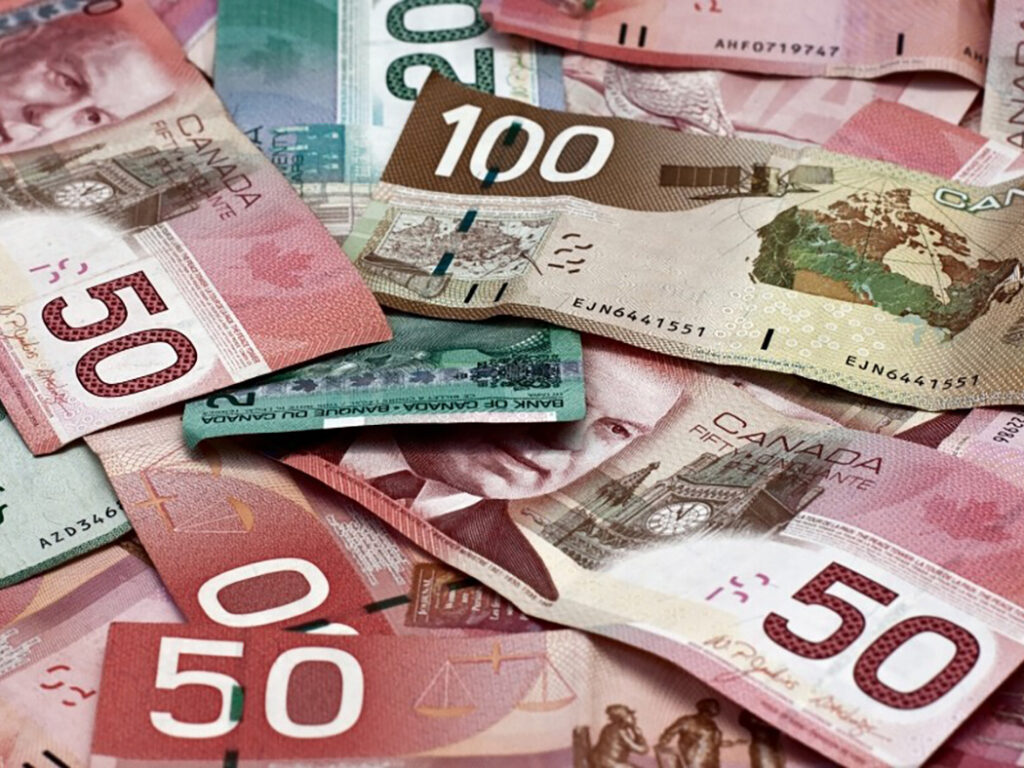
Although the Loonie and the Toonie are now deeply ingrained slang terms for the Canadian one-dollar and two-dollar coins, the slang term of cash in Canada is bucks. As in, “Can you chip in a few bucks for gas?”
This Canadian term originates from a coin struck in the 17th century by The Hudson’s Bay Company which had an equivalent value to that of a pelt of a male beaver, otherwise known as a “buck”.
Housecoat

When Canadians lounge around all day without getting dressed during a pandemic, they typically do so while wearing a housecoat. Those South of the border will usually do so in a bathrobe.
Although some mistakenly believe that a housecoat is worn by Canadian women and a bathrobe is worn by Canadian men, that is not the case. Both terms are fully unisex.
Molson Muscle

If a Canadian wants to show off their physique – ironically speaking of course – they’ll talk about how much Molson Muscle they’ve put on this summer.
What you need to know is that they are referring to their beer belly. Molson, of course, being a popular brand of beer. Muscle, of course, being used very ironically to refer to the expansion of one’s waistline that happens when you drink too much beer.
This can also be used against unsuspecting Americans. So don’t be flattered if your Canadian cousin complements you on your Molson Muscle.
Knapsack

Even though the origins of the name come from Germany, Knapsack has become the widely accepted Canadian slang term for your everyday backpack.
Experts believe that the term knapsack comes from a time when German soldiers would carry food (referred to as knappen – “to bite”) in their backpacks, and that the name evolved to knapsacks.
How it made it from Germany into the Canadian vernacular, we don’t know. Maybe some snuck it in to the country in their knapsack?
Eavestroughs
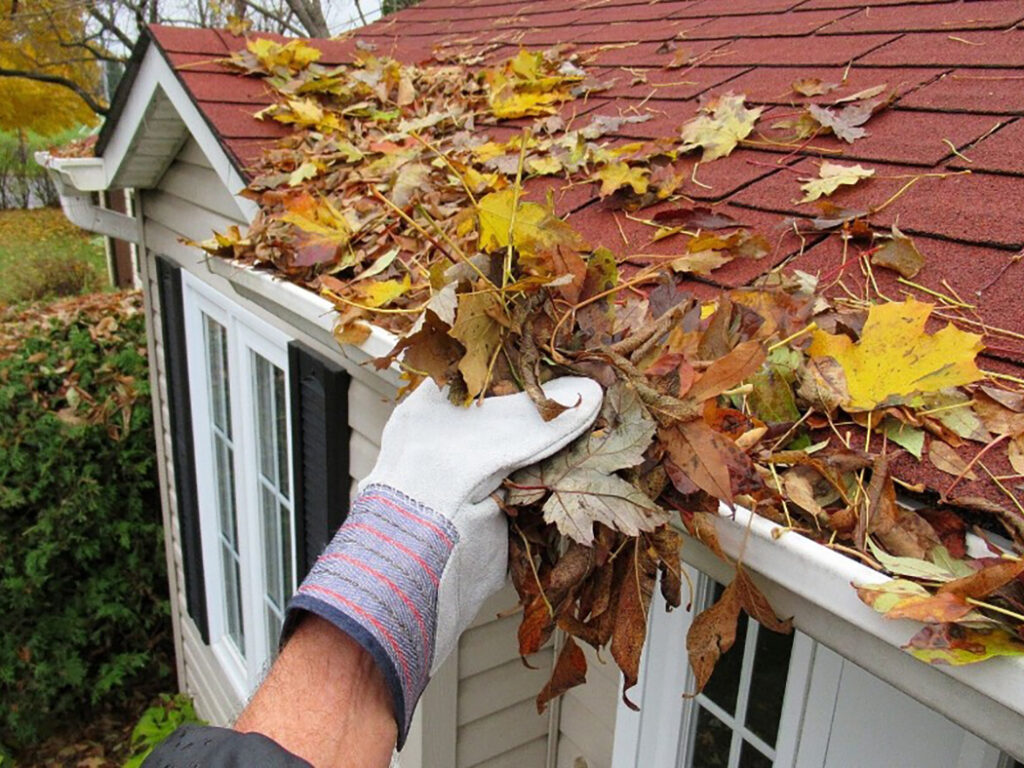
As the name implies, an eavestrough is a trough that goes on the eaves of a building. It is used to help drain water from the roof during rainfall. In America, these are typically referred to as gutters, but I think eavestrough is a much nicer-sounding word.
Chocolate Bar
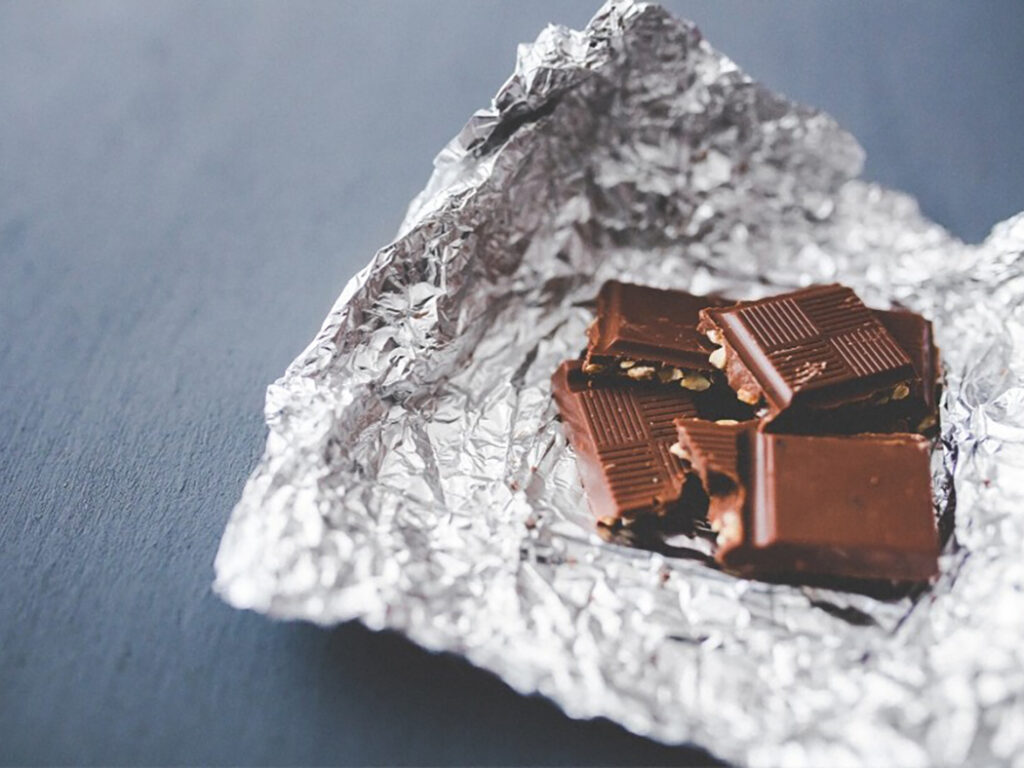
For some unknown reason, we tend to refer to these delicious confectionery treats as Candy Bars, even though nearly all of them contain chocolate and very few of them actually contain candy. In Canada, they are referred to as Chocolate Bars – as they all have one common ingredient – chocolate.
Although some Canadian Chocolate Aficionados will tell you that this moniker is not used in America because most of the candy bars in the US use such a substandard form of chocolate that they don’t deserve to use that word in their name.
Kerfuffle
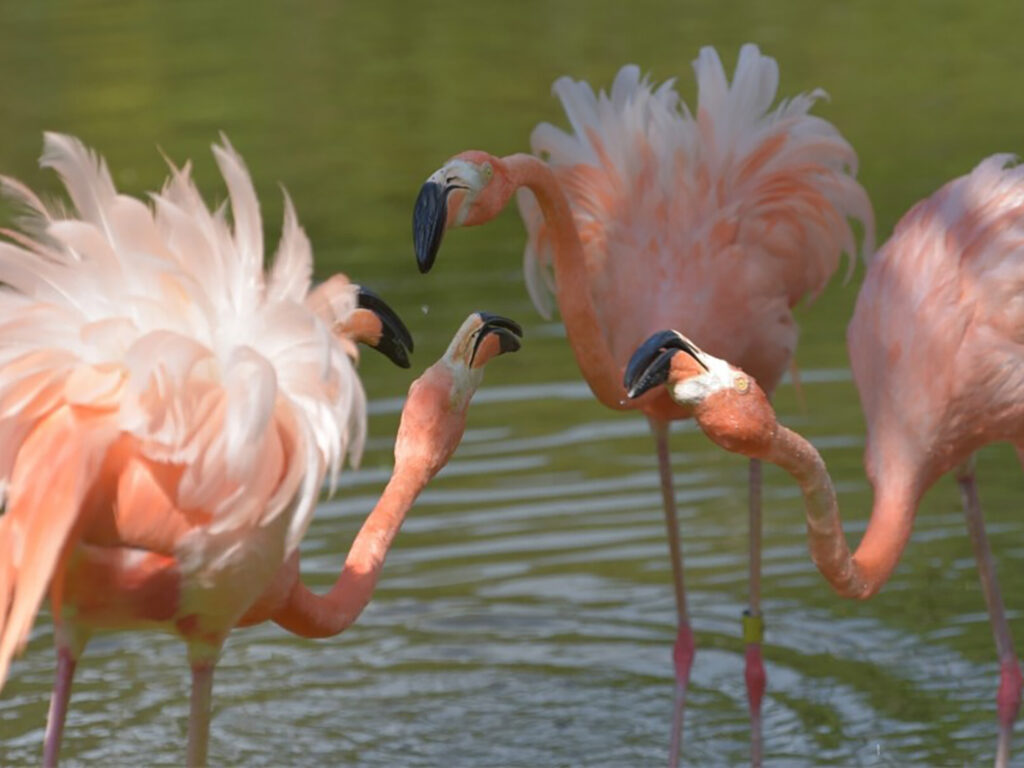
It might create quite a fuss if your Canadian friend or family member starts talking about their latest Kerfuffle. But that’s just because this Canadian slang term, with its roots in the Scottish and Gaelic languages, is not used much outside of Canada.
Defined as a commotion or a fuss caused by conflicting views, the term has fallen out of popular usage in Canada in recent years, but you can still hear someone gossiping about a kerfuffle or two that happened in their neighbourhood.
And it’s kind of a fun word, don’t you think?
Thongs
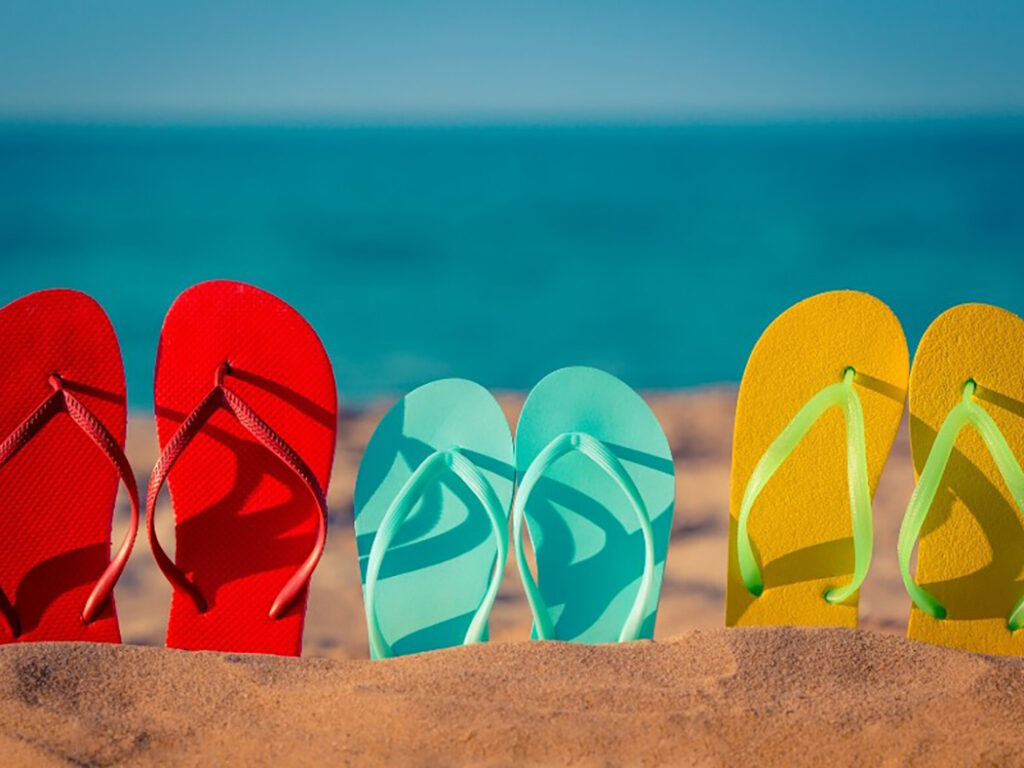
In Canada, they have two types of thongs. The slinky underwear kind. And the flip-flop sandal that received the thong nickname because of the thong-like toe hold.
Shit-kickers
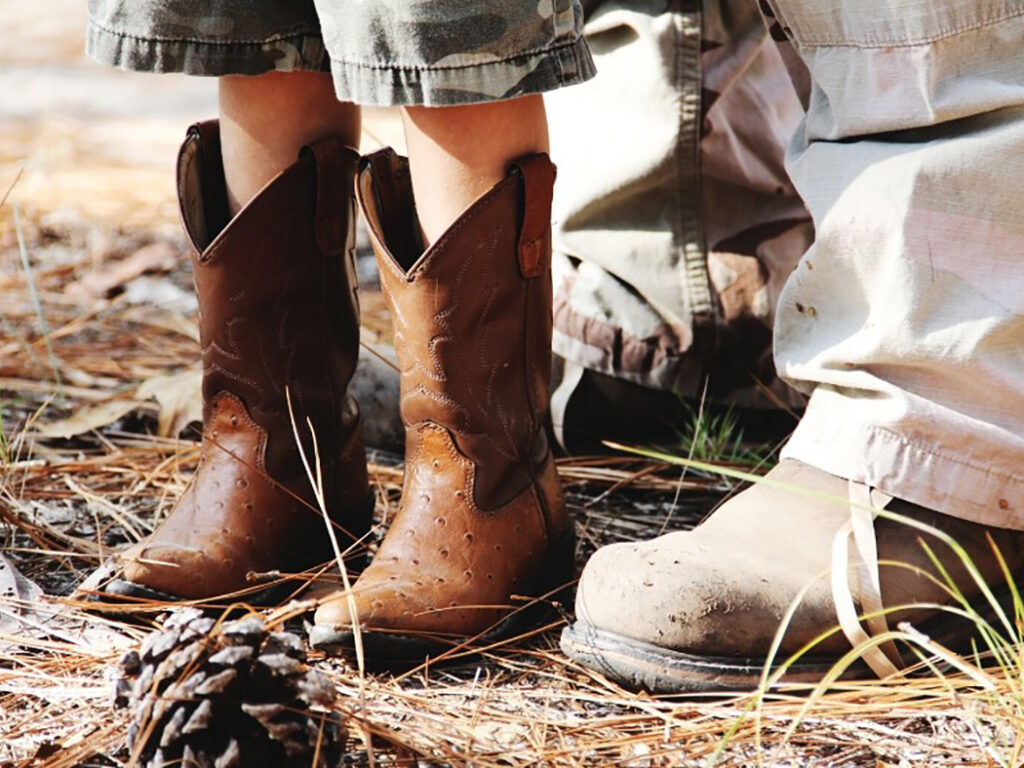
If you really want to complement your Canadian Tuxedo, you can do so by donning a pair of shit-kickers. That’s because this colloquial term is used to refer to a heavy pair of boots, which can include cowboy boots, work boots, or even combat boots.
Klicks
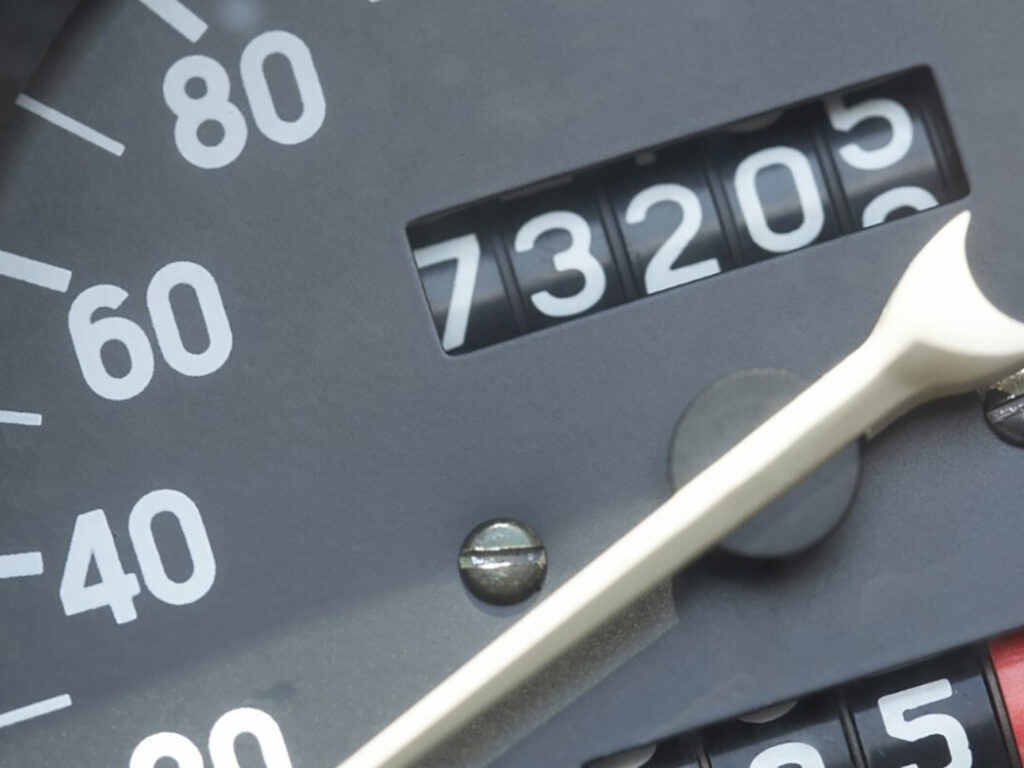
No, these are not a group of popular kids in high school This is a term used to measure the distance for a road trip, because it’s a common Canadian slang short form for kilometers.
The Canadian Slang to American Dictionary
And there you have it, these 33 uniquely Canadian slang words & phrases have officially been demystified and translated into terminology you can use to help bring about world peace.
Or, at the very least, get your Canadian friend a napkin to clean themselves up after they spill their pop onto their Canadian Tuxedo, Eh?

